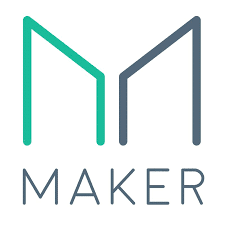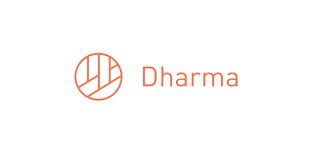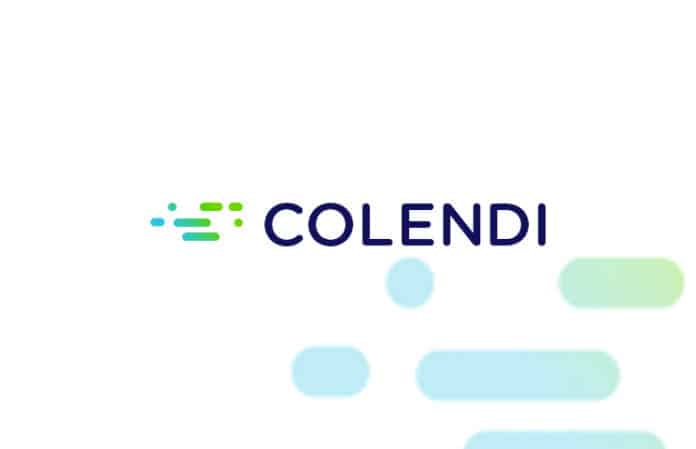Top 5 DeFi (Decentralized Finance) Projects
Decentralized Finance (DeFi) refers to open-source software applications on the Ethereum blockchain (also known as decentralized applications, or DApps) that serve as financial instruments or protocols, primarily involving cryptocurrencies. The goal of DeFi is to cultivate trustless and democratic financial blockchain activity, while preventing censorship and rent-seeking activity. Here is a breakdown of five leading top DeFi projects and the specific problems that they aim to solve.
1. MakerDAO
Currently headquartered in Santa Cruz, California, Maker is a decentralized autonomous organization (DAO) that focuses on volatility mitigation through its Dai stablecoin. Its CEO is Rune Christensen, who studied at Copenhagen Business School prior to founding the organization, and its CTO is Andy Milenius, a former software engineer at Amazon.
The Dai stablecoin, which is pegged to the US dollar, can be collateralized by a separate security token (a process known as a collateralized debt position, or CDP). Through this and other methods, Maker’s primary objective is to establish a stable exchange of value on the Ethereum blockchain.
2. Uniswap
Uniswap is a token exchange protocol that is based on the ERC20 token standard (which is widely utilized for its ability to establish commonality between different tokenized assets). It was created by Hayden Adams, who first became interested in smart contract development when a friend of his at the Ethereum Foundation convinced him to learn Solidity.
Uniswap serves as an interface through which users can exchange ERC20 tokens. It emphasizes ease-of-use and transparency, and also facilitates precisely one exchange contract per ERC20 token.
3. Compound Finance
Initially funded by Coinbase and Andreeseen Horowitz, Compound Finance is a protocol for Ethereum-based money markets. It was created by Robert Leshner and Geoffrey Hayes, who had previously started two other companies together, in addition to having worked various technology and finance jobs.
Compound enables cryptocurrency holders (informally known as ‘hodlers’) to lend out their unused assets at algorithmically calculated interest rates. Although those rates are subject to market fluctuations, the company anticipates them to stay generally within the 5% to 10% range. Beyond the immediate benefits of lending and borrowing opportunities that this service creates, it could also potentially add a lot of liquidity to cryptocurrency in general if it succeeds.
4. Dharma Protocol
Built on top of the 0x protocol (which is a modular system for decentralized exchange on the Ethereum blockchain), Dharma enables permissionless management of debt instruments through smart contracts and other Ethereum-based mechanisms. It is a product of Dharma Labs, which was founded by Nadav Hollander (a former engineer at Coinbase and Google), and is backed by YCombinator and Polychain Capital.
The Dharma Protocol’s central aim is to provide an alternative to the traditional debt industry, which suffers from systemic misgovernance and a lack of transparency. The protocol is executed through a system of debt orders, which are transferred, underwritten and managed through Ethereum smart contracts in a peer-to-peer manner.
5. Colendi
Colendi is an Ethereum-based microcredit platform that aims to challenge conventional methods of credit scoring. Similar to microcredit organizations such as Tala (a dominant player in the non-blockchain market), Colendi leverages blockchain technology in order to extend microcredit opportunities on a global scale. The platform’s headquarters are in Switzerland, with offices in Turkey and China, and its official launch was in early 2019.
Colendi seeks to serve the world’s underbanked individuals and businesses, who are estimated to comprise almost 40% of the global population. Lack of access to adequate banking services is a problem that, according to Colendi, extends even to the developed world. They seek to mitigate the issue with their platform, which is divided into a protocol and non-protocol layer (the former consists of borrowers, lenders, merchants and data partners; while the latter consists of contributors, data integrators and validators).
Conclusion
The advent of Ethereum and smart contracts has arguably served as the killer app for decentralized finance. DeFi use cases now vary widely and are diversifying with every new innovation. While the 5 DeFi projects mentioned above are among the foremost industry leaders, there are plenty of other major players who will undoubtedly become more well-known as decentralized finance increases its influence in global markets.







